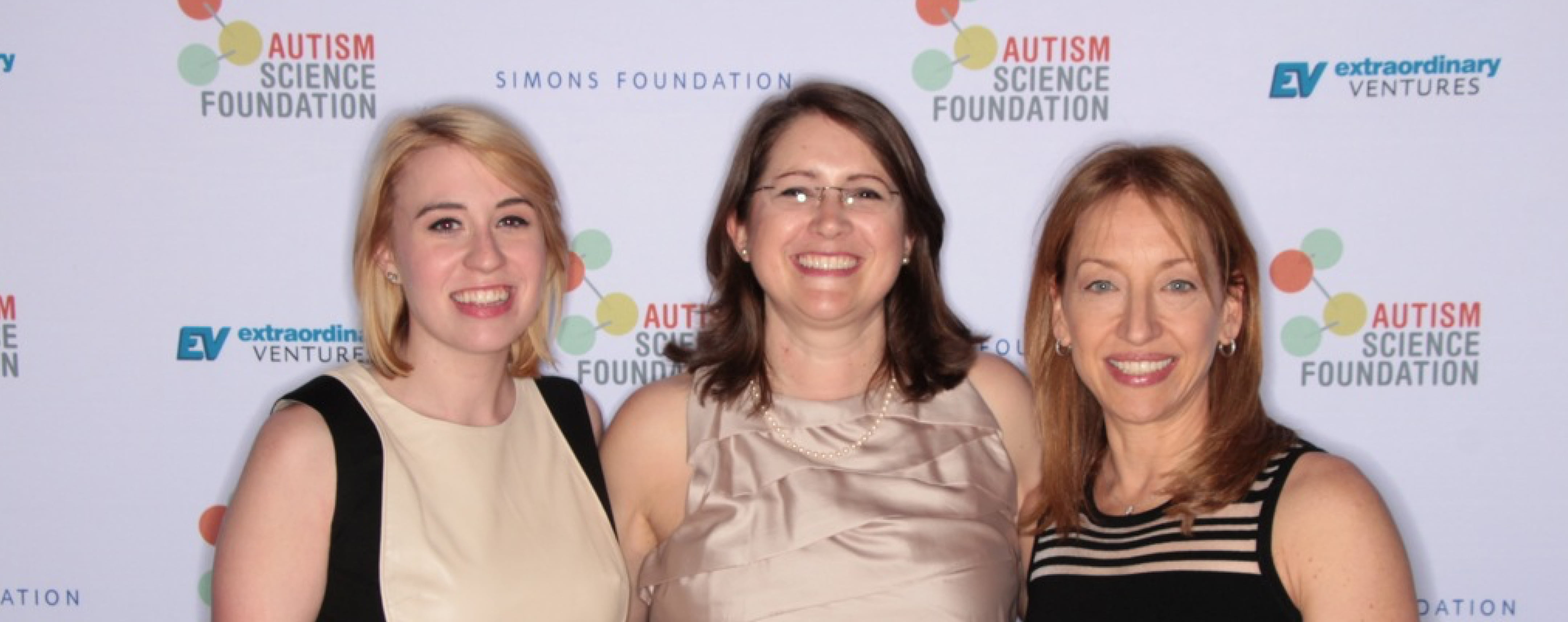Autism Sisters Project Expanded
The Autism Science Foundation (ASF) announced the launch of three new multi-year research grants to expand the Autism Sisters Project at the University of California at San Francisco (UCSF) and the Broad Institute in Cambridge, MA. The Autism Sisters Project is an ASF initiative that explores the Female Protective Effect by studying autism families with an undiagnosed sister. Multiple lines of scientific evidence now show that females with an autistic sibling may have protective or resilience factors to autism.

Somer Bishop, PhD (UCSF)
For years, scientists have reported higher autism prevalence in males, but the reason for this gender discrepancy isn’t fully understood. One potential explanation is the presence of protective factors in females that may be genetic, epigenetic, environmental, or a combination of these. Research has shown that some females carry genetic deletions or duplications that are known causes of autism, yet these girls do not exhibit clinical symptoms of autism. Other studies have pointed to the presence of a higher genetic “load” for females to reach the autism threshold, compared to males. As a group, girls with autism tend to exhibit more severe symptoms and tend to be diagnosed later. These initial findings warrant a focused study of unaffected sisters of individuals with autism to try to identify this potential protective effect.

Stephan Sanders, BMBS, PhD (UCSF)
The three new research efforts funded by ASF will utilize data collected from families where a sister in the family does not have a diagnosis of ASD. Scientists will analyze thousands of families to understand the association between sex, phenotype and genetic mutation in all family members. Lead researchers will be Dr. Somer Bishop, associate professor at UCSF, Dr. Stephan Sanders, assistant professor at UCSF, and Dr. Elise Robinson, assistant professor at the Harvard T.H. Chan School of Public Health and an associate member of the Broad Institute of MIT and Harvard.

Elise Robinson, ScD (Harvard)
Funding for Drs. Bishop, Sanders and Robinson will allow them to analyze previously collected genetic and behavioral data to study the female protective effect in autism, specifically the genetic and behavioral features of sisters of individuals with ASD. The unprecedented combination of datasets includes information from thousands of families contained in the Autism Sequencing Consortium as well as datasets such as the Autism Genetic Resource Exchange and the Baby Siblings Research Consortium.
The Autism Sisters Project focuses on three areas:
- Data on unaffected sisters will be gathered from existing databases with rigorous behavioral phenotyping data on all family members, this funding will start in August.
- New families with a member who has autism and a female sibling without an ASD diagnosis will be recruited to the Icahn School of Medicine at Mount Sinai to donate saliva samples and participate in a full screening. A full DNA exome scan, among other analyses, will be performed on the entire family. This was funded in 2016 and the study is ongoing.
- In the future, funds will be provided to autism research sites so that sequencing and phenotyping can be expanded to include an unaffected sister in families where samples from parents and the individual diagnosed with autism have already been collected.

